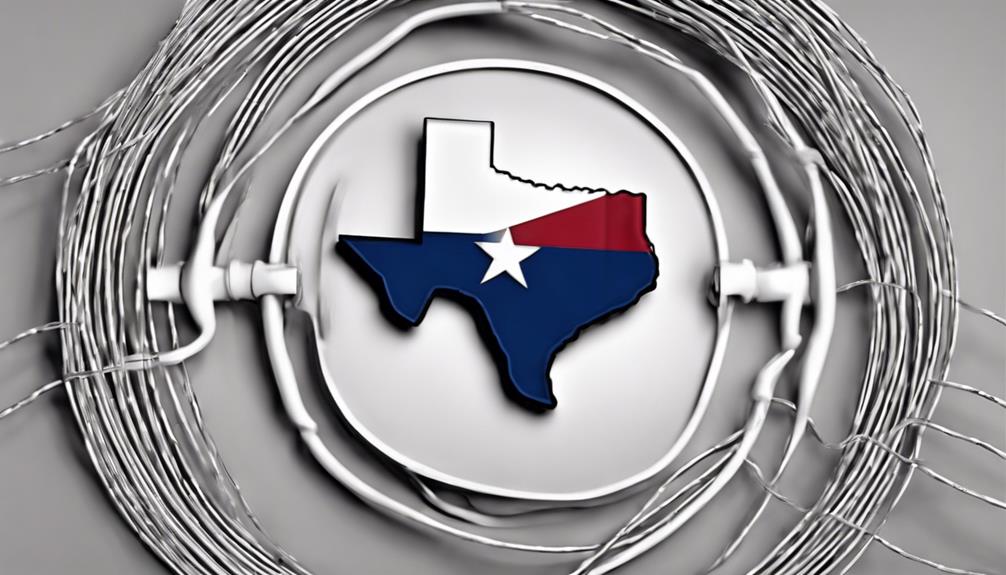Understanding the divorce process involves learning about key steps like filing a petition, sharing custody plans, dividing property fairly, and possibly working through negotiations or court decisions. You’ll need to gather important documents, understand your local laws, and prepare for emotional challenges. Cooperation with your spouse can simplify matters, but court decisions rely on evidence and legal standards. If you keep exploring, you’ll find valuable details to help guide you through each stage with confidence.
Key Takeaways
- Initiate divorce by filing a petition and serving it to the spouse, following local legal procedures.
- Address custody and property division through negotiation, mediation, or court decisions based on evidence.
- Gather and document assets, debts, and children’s needs to support fair negotiations or court rulings.
- Understand jurisdiction-specific laws, such as Louisiana alimony laws, to anticipate legal requirements and outcomes.
- Maintain emotional resilience and seek legal guidance to navigate the process effectively and reduce stress.

Are you feeling overwhelmed by the prospect of divorce? It’s completely natural to feel this way, especially with so many legal and emotional factors at play. The divorce process can seem complicated, but understanding the key steps can make it more manageable. One of the first things you’ll need to consider is custody arrangements. These determine how you and your spouse will share responsibilities for your children, and they’re often one of the most emotionally charged aspects of divorce. Courts generally prioritize the best interests of the children, so you’ll want to gather information about your children’s needs, routines, and your ability to provide a stable environment. If both parents can communicate and cooperate, you might reach an agreement outside court, which can save time and reduce stress. However, if disagreements arise, a judge will step in to decide what’s best for your kids, based on evidence and testimony.
Alongside custody arrangements, property division plays an instrumental role in the divorce process. This involves determining who gets to keep what, from the family home to savings accounts and personal belongings. Laws vary depending on your jurisdiction, but generally, property acquired during the marriage is considered marital property and subject to equitable distribution. That doesn’t always mean a 50/50 split; courts aim for fairness, which can depend on factors like each spouse’s financial contribution, needs, and future earning potential. It’s wise to gather documentation of all assets and debts early on to facilitate negotiations or court proceedings. Sometimes, spouses agree on property division through settlement talks or mediation, which tends to be quicker and less costly than litigation. If you can’t reach an agreement, the court will decide for you, making its ruling based on the evidence and applicable laws. Additionally, understanding the specific Louisiana alimony laws can be crucial when negotiating support arrangements. Knowing how property division is handled in your jurisdiction can also help you prepare for negotiations or court decisions. Consulting a knowledgeable attorney can provide insights into how local laws might influence your case and outcomes. Moreover, being aware of the divorce procedures specific to your area can help you navigate the legal process more effectively.
Once custody arrangements and property division are addressed, the process moves into filing paperwork, which officially starts your divorce. This involves submitting a petition for divorce, serving it to your spouse, and then engaging in negotiations or court hearings. Throughout this process, patience and clarity are essential. It’s often helpful to work with a lawyer who can guide you through legal requirements, help you understand your rights, and advocate for your interests. Being aware of divorce laws and procedures specific to your jurisdiction can help you anticipate potential challenges and streamline the process. Remember, divorce isn’t just a legal procedure; it’s also an emotional journey. Being prepared and informed about the steps involved can reduce anxiety and help you move forward with confidence. While it may feel intimidating now, understanding each phase helps you regain control and work toward a resolution that’s best for you and your family.
Frequently Asked Questions
How Long Does the Divorce Process Typically Take?
They say patience is a virtue, and it’s true for divorce timelines too. Typically, the divorce process can take anywhere from a few months to over a year, depending on factors like legal delays and whether you reach an agreement with your spouse. Uncontested divorces tend to be quicker, while contested ones take longer. Be prepared for some variability, and remember that each case is unique in its divorce timeline.
Can I Divorce Without Hiring a Lawyer?
You can definitely pursue a DIY divorce if your situation is straightforward and both parties agree. Many states offer online resources and forms to help you navigate the process without hiring a lawyer. However, if your case involves complex issues like property division or child custody, consider seeking legal aid or consulting a lawyer. Doing it yourself can save money, but guarantee you understand the legal requirements to avoid complications.
What Are the Grounds for Divorce in My State?
You need to check your state’s specific grounds for divorce, which often include marital misconduct or irreconcilable differences. Residency requirements vary, so confirm you meet the duration needed before filing. Some states accept no-fault divorces, while others require proof like marital misconduct. Knowing these rules helps you determine if you qualify and how to proceed legally, guaranteeing a smoother process without unnecessary delays.
How Are Child Custody Arrangements Decided?
When deciding child custody arrangements, the court considers your child’s best interests, often involving a custody evaluation. You and the other parent can agree on visitation rights, but if not, the court will determine what’s best. Factors like stability, each parent’s ability to care for the child, and the child’s wishes (depending on age) influence the decision. The goal is to guarantee a healthy, supportive environment for your child.
What Are the Financial Implications of Divorce?
Think of divorce as steering a financial river, where your marital assets are the water, and alimony obligations are the currents shaping your course. You’ll need to divide assets fairly, which can impact your financial stability, and consider ongoing alimony payments that affect your income. Preparing for these financial implications helps you steer confidently, ensuring you’re ready for the changes and responsibilities that come with ending a marriage.
Conclusion
Now that you understand the steps involved, you’re closer to maneuvering the divorce process with confidence. But remember, every case is unique, and unexpected twists can arise just when you think you’ve got it all figured out. Stay prepared, stay informed, and don’t be afraid to seek support along the way. The journey may be challenging, but with the right knowledge, you’ll be ready to face whatever comes next—just around the corner.










